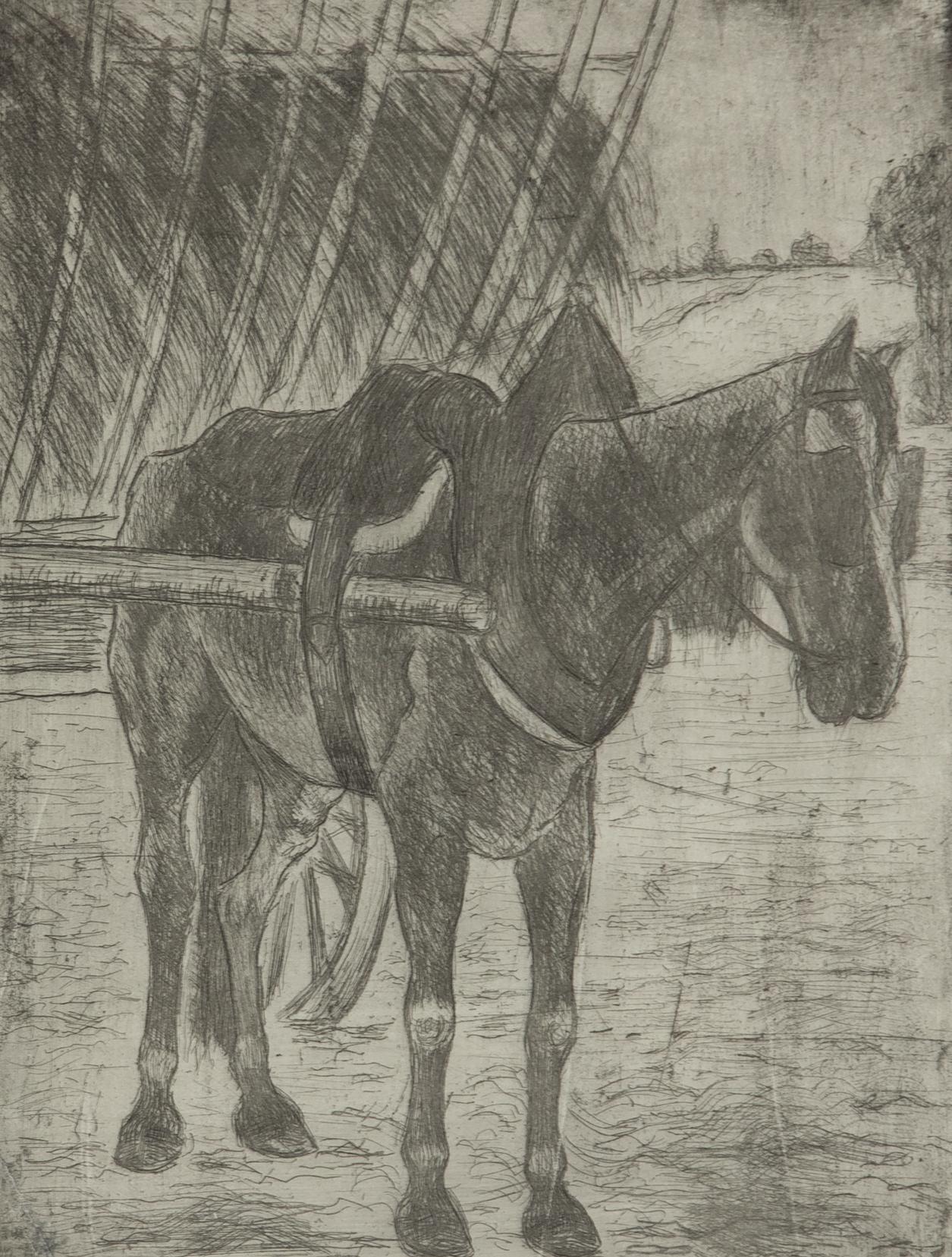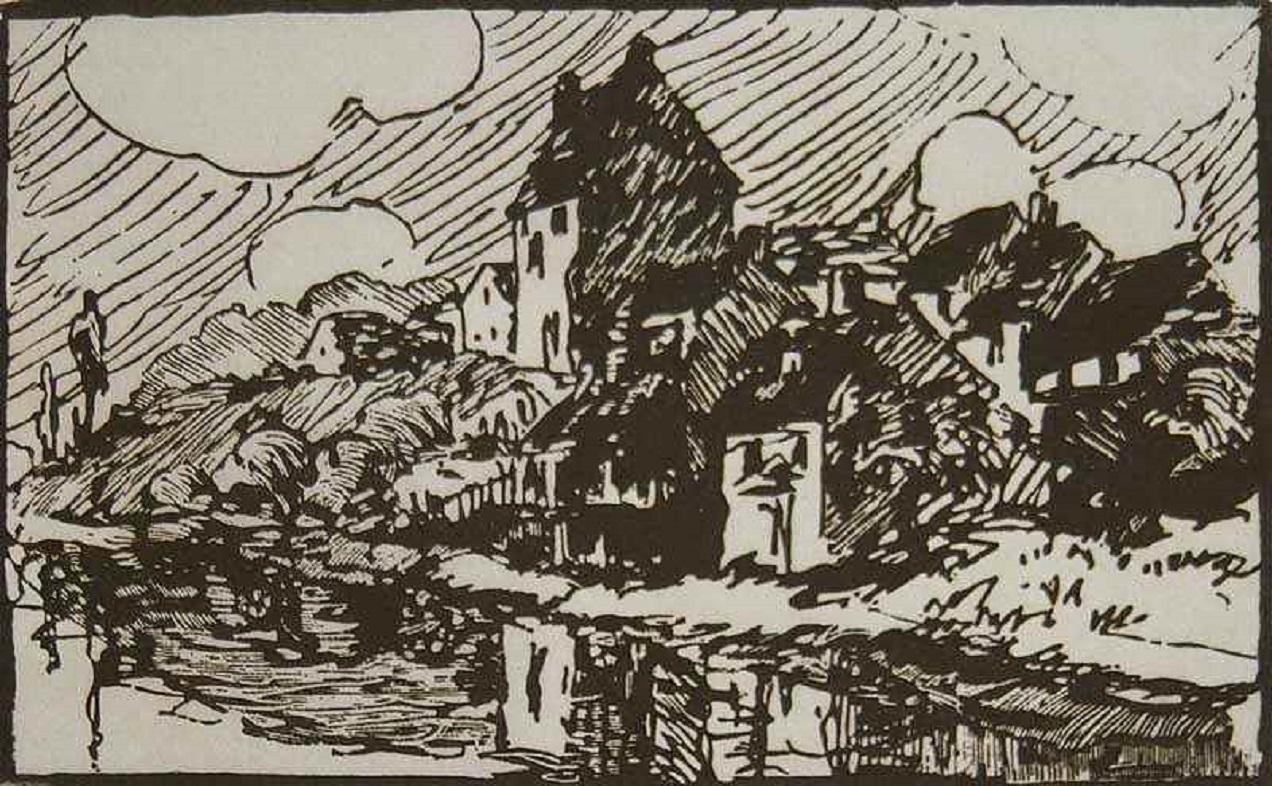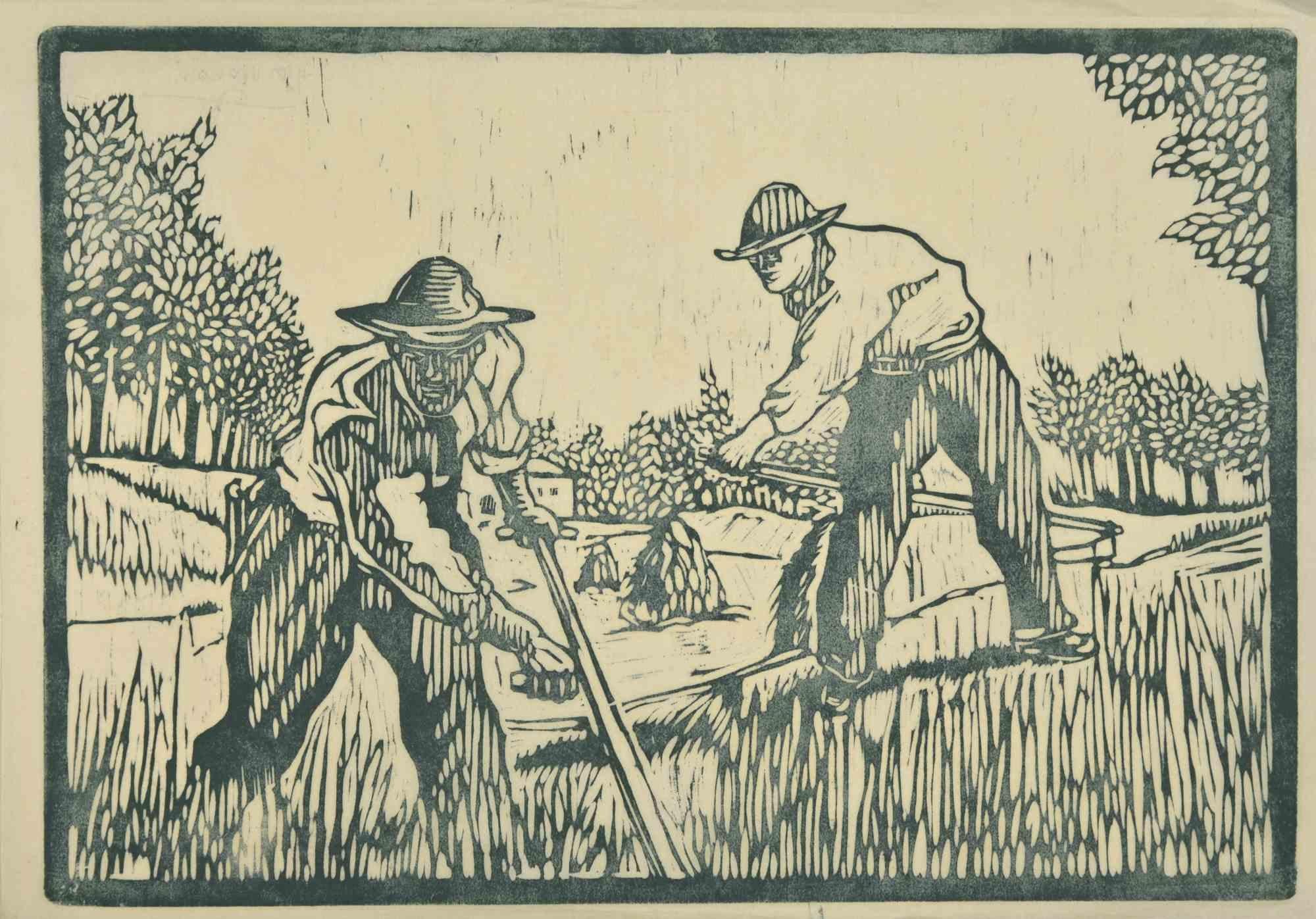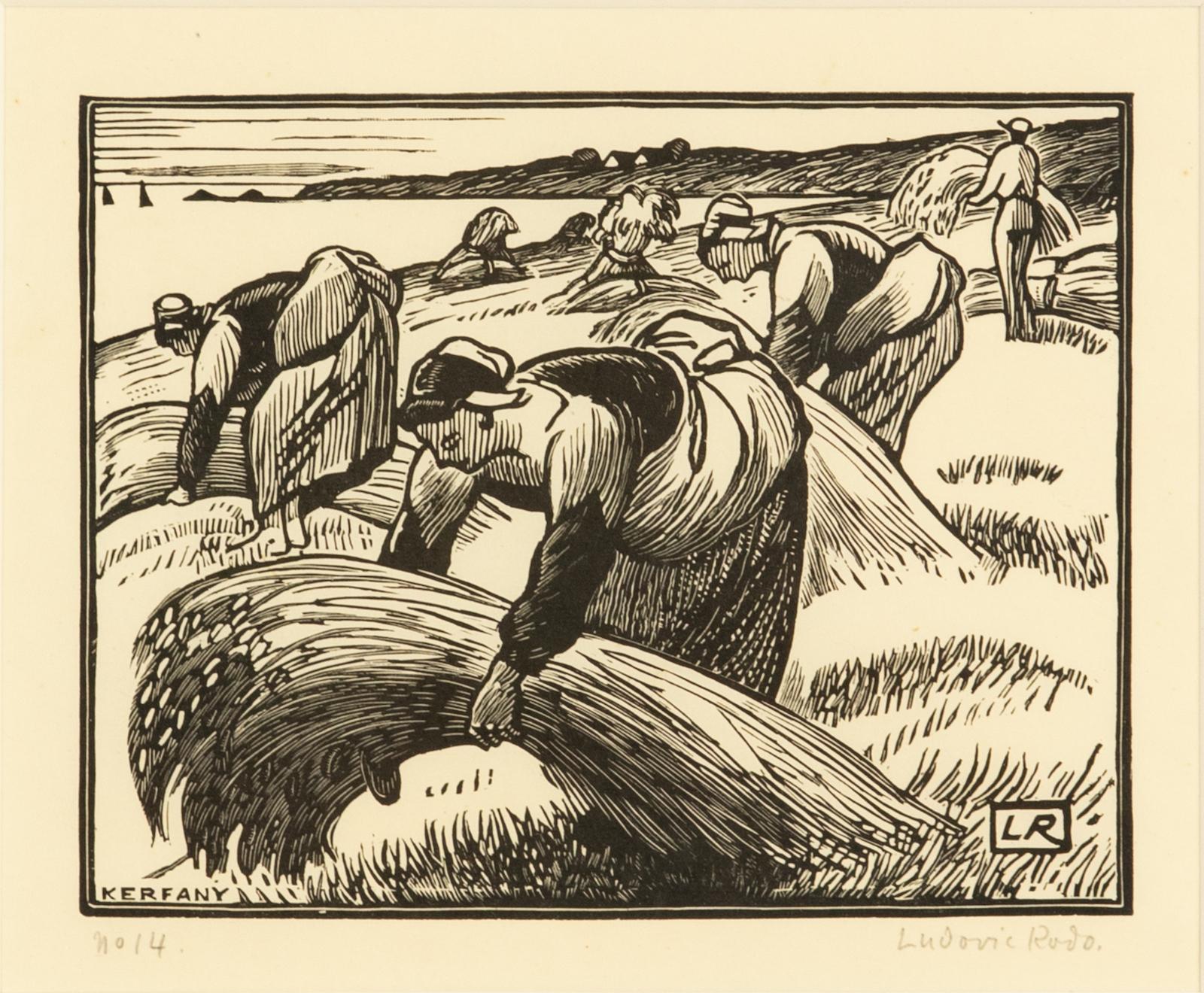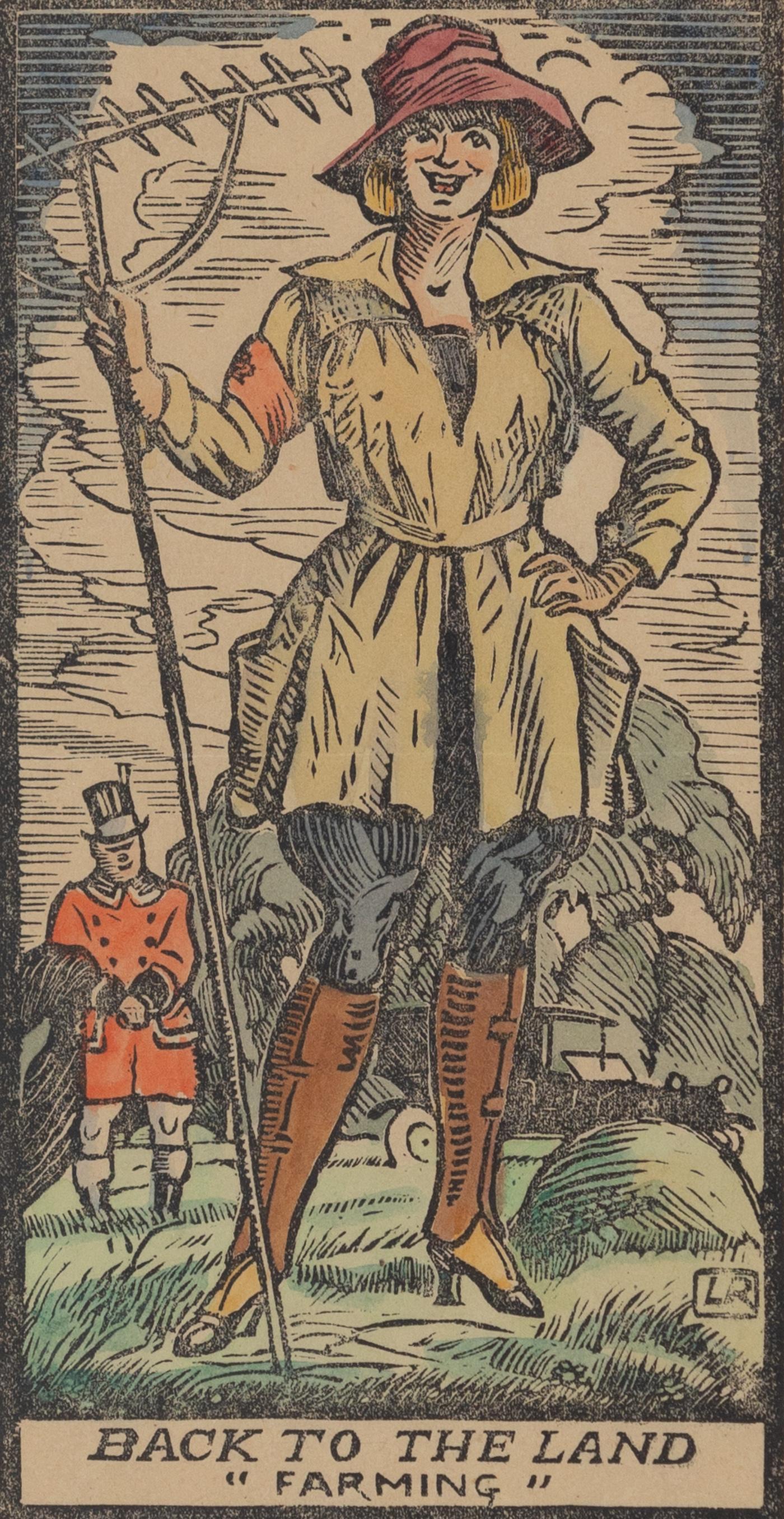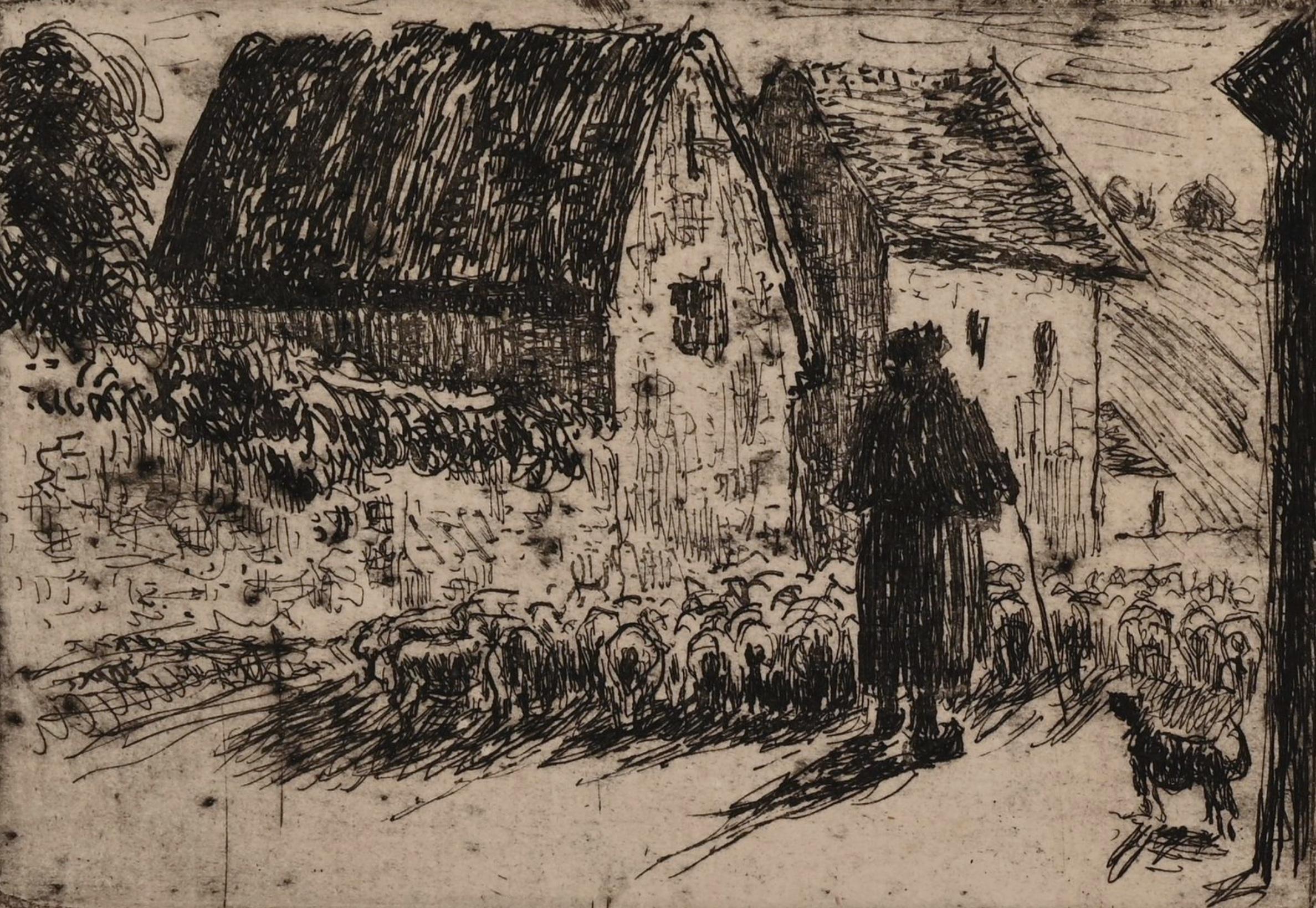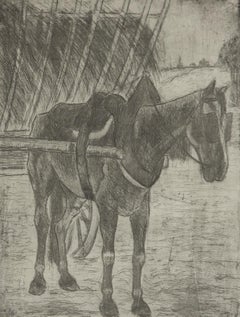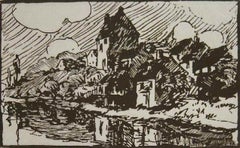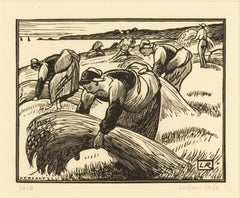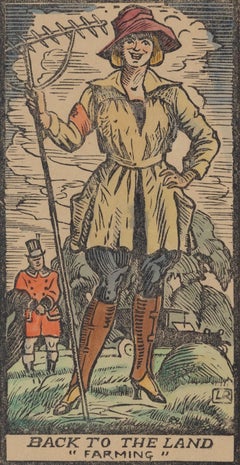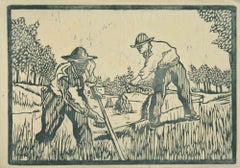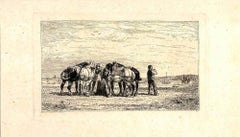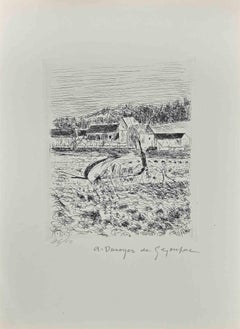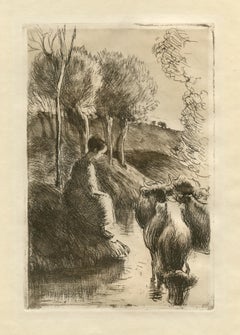Items Similar to Man Ploughing by Paulémile Pissarro - Wood Engraving Print
Want more images or videos?
Request additional images or videos from the seller
1 of 5
Paulémile PissarroMan Ploughing by Paulémile Pissarro - Wood Engraving Print
$757.12
£540
€641.61
CA$1,033.26
A$1,150.63
CHF 598.84
MX$14,187.08
NOK 7,626.65
SEK 7,168.31
DKK 4,787.18
Shipping
Retrieving quote...The 1stDibs Promise:
Authenticity Guarantee,
Money-Back Guarantee,
24-Hour Cancellation
About the Item
Man Ploughing by Paulémile Pissarro (1884 - 1972)
Wood engraving
7 x 13 cm (2 ³/₄ x 5 ¹/₈ inches)
Signed lower right, Paulémile Pissarro and numbered lower left, 4/5
Artist's Biography
Paulémile Pissarro, Camille Pissarro’s youngest son, was born in Éragny in 1884 where he was brought up within the creatively fertile environment of his family home and, encouraged by his father, began drawing at an early age. Paulémile’s godfather was Claude Monet, who became his teacher and legal guardian after Camille’s death in 1903.
In 1905 Paulémile exhibited at the Salon des Indépendants for the first time. Although his father had supported Paulémile’s desire to be an artist, his mother was eager for him to learn a more practical trade. Therefore in 1908 he put aside his artistic pursuits to work as an automobile mechanic and test-driver, then later as a lace and textile designer, allowing him only a limited time to paint. Paulémile only fully dedicated himself to painting following a letter from his brother Lucien in London, who wrote to invite him to take part in an exhibition held in London. Subsequent to the successful sale of a number of watercolours he had sent over, the young artist became inspired to leave the textile factory and pursue a career in art.
By the 1920s Paulémile had become an established Post-Impressionist artist in his own right, spending the summer months escaping from Paris on painting trips with fellow artists Kees Van Dongen, Raoul Dufy, Maurice de Vlaminck and André Dunoyer de Segonzac. In 1922 Paulémile purchased a house in Lyons-la-Forêt, a small village within the region of his hometown of Éragny and Giverny, where he moved in with his first wife Berthe Bennaiche. During this time, he developed a form of Cubism inspired by Paul Cézanne whom he dearly admired, creating some wonderful paintings of the river Eure and its surrounding villages. There he formed a close friendship with his neighbour, the famous Art Deco designer Émile-Jacques Ruhlmann, who designed a stunning Art Deco studio for Paulémile adjacent to his house.
In 1930 he visited and fell in love with the Swiss Normandy area in the Calvados region, in particular the River Orne which runs through the valley adjacent to the villages of Clécy and St. Remy. The combination of rolling hills, bold meadows and the calm river weaving its way through the landscape offered Paulémile a new burst of inspiration. With his second wife Yvonne Beaupel, Paulémile eventually moved to Clécy in 1935, where he would remain for the rest of his life. Of their three children, both H. Claude and Yvon also became artists.
With his house backing on to the river Orne, Paulémile developed a new way of working using a boat as a floating studio, where he spent countless days painting the calm waters from between the riverbanks. Here the influence of his godfather Claude Monet became apparent, particularly in Paulémile’s depiction of water, which was revolutionised by the Impressionist icon. He also applied Monet’s lessons in horticulture to the creation of an abundant garden, offering him many more motifs for his new paintings. Alongside these river landscapes, he also painted the neighbouring hay fields, various snow scenes, some interiors and still lives. The most ambitious work in his oeuvre was a fresco painted on all four walls of his own dining room, depicting the adjacent river in which he includes family members, neighbours and friends.
In 1967 Paulémile had his first one-man show in the United States at Wally Findlay Galleries in New York. This led to widespread recognition and a degree of professional success that few Pissarro artists knew during their lifetime. Since his death in 1972, Paulémile remains one of the best known of Camille’s sons.
- Creator:Paulémile Pissarro (1884 - 1972, French)
- Dimensions:Height: 2.76 in (7 cm)Width: 5.12 in (13 cm)
- Medium:
- Period:
- Condition:
- Gallery Location:London, GB
- Reference Number:1stDibs: LU261212622862
About the Seller
5.0
Recognized Seller
These prestigious sellers are industry leaders and represent the highest echelon for item quality and design.
Established in 1964
1stDibs seller since 2015
102 sales on 1stDibs
Typical response time: 5 hours
Associations
Society Of London Art Dealers
- ShippingRetrieving quote...Shipping from: London, United Kingdom
- Return Policy
Authenticity Guarantee
In the unlikely event there’s an issue with an item’s authenticity, contact us within 1 year for a full refund. DetailsMoney-Back Guarantee
If your item is not as described, is damaged in transit, or does not arrive, contact us within 7 days for a full refund. Details24-Hour Cancellation
You have a 24-hour grace period in which to reconsider your purchase, with no questions asked.Vetted Professional Sellers
Our world-class sellers must adhere to strict standards for service and quality, maintaining the integrity of our listings.Price-Match Guarantee
If you find that a seller listed the same item for a lower price elsewhere, we’ll match it.Trusted Global Delivery
Our best-in-class carrier network provides specialized shipping options worldwide, including custom delivery.More From This Seller
View AllHorse Pulling Hay Cart by Félix Pissarro - Animal etching, 19th century
By Félix Pissarro
Located in London, GB
Horse Pulling Hay Cart by Félix Pissarro (1874-1897)
Etching
19.5 x 15 cm (7 ⅝ x 5 ⅞ inches)
Exhibition
London, Stern Pissarro Gallery, Camille Pissarro & his Descendants - A Tradit...
Category
1890s Post-Impressionist Animal Prints
Materials
Etching
Paysage à Asquins by Paulémile Pissarro - Wood Engraving Print
Located in London, GB
SOLD UNFRAMED
Paysage à Asquins by Paulémile Pissarro (1884 - 1972)
Wood engraving
9.7 x 15.5 cm (3 ⁷/₈ x 6 ¹/₈ inches)
Signed lower right, Paulémile-Pissarro, titled and numbered ...
Category
20th Century Landscape Prints
Materials
Wood, Engraving
Kerfany by Ludovic-Rodo Pissarro - Wood engraving
By Ludovic-Rodo Pissarro
Located in London, GB
Kerfany by Ludovic-Rodo Pissarro (1878-1952)
Wood engraving
10.9 x 13.9 cm (4 ¹/₄ x 5 ¹/₂ inches)
Initialled and titled in the plate
Signed lower right, ...
Category
20th Century Post-Impressionist Landscape Prints
Materials
Engraving
Back to the Land “Farming” by Ludovic-Rodo Pissarro - Colour woodcut
By Ludovic-Rodo Pissarro
Located in London, GB
Back to the Land “Farming” by Ludovic-Rodo Pissarro (1878-1952)
Colour wood engraving
19.3 x 10.5 cm (7 ⁵/₈ x 4 ¹/₈ inches)
Initialed and titled in the plate and numbered, 4th state ...
Category
1910s Figurative Prints
Materials
Color, Woodcut
La rentrée du Berger by Camille Pissarro - Etching
By Camille Pissarro
Located in London, GB
La rentrée du Berger by Camille Pissarro (1830-1903)
Etching
7.6 x 10.9 cm (3 x 4 ¹/₄ inches)
Stamped with initials C.P. lower left, and numbered 13/18 lower right
This work was crea...
Category
1880s Impressionist Landscape Prints
Materials
Etching
Horse by Félix Pissarro - Wood engraving
By Félix Pissarro
Located in London, GB
Horse by Félix Pissarro (1874-1897)
Wood engraving
10 x 9 cm (4 x 3 ¹/₂ inches)
Artist biography:
Félix Pissarro, affectionately known to his family as “Titi”, was born in Pontoise ...
Category
19th Century Animal Prints
Materials
Woodcut
You May Also Like
Peasants - Woodcut Print by Augusto Monari - Early-20th Century
Located in Roma, IT
Peasants is a woodcut print realized by Augusto Monari in the Early-20th Century.
Good conditions.
The artwork is depicted through confident strokes in a well-balanced composition.
Category
Early 20th Century Modern Figurative Prints
Materials
Woodcut
Horses in the Landscape - Original Etching by J.J. Veyrassat - Late 19th Century
By Jules Jacques Veyrassat
Located in Roma, IT
Horses in the Landscape is an original artwork realized by Jules Jacques Veyrassat in the second half of the XIX century.
Original etching on paper. Proof before Letter. Passepartou...
Category
Late 19th Century Modern Figurative Prints
Materials
Etching
The Plow on the Fields- Etching by André Dunoyer de Segonzac- 1950s
By André Dunoyer de Segonzac
Located in Roma, IT
The Plow on the Fields is an etching and drypoint realized by André Dunoyer de Segonzac (1884-1974).
Good condition on a yellowed paper.
Hand-signed by the artist on the plate.
Limited edition of 60 copies numbered and signed.
André Dunoyer de Segonzac (7 July 1884 – 17 September 1974) was a French painter and graphic artist.In 1947, he published his suite of etchings illustrating the Georgics of Virgil. In the judgement of Anne Distel, chief curator of the Musée d'Orsay, "The technical perfection and the nobility of the tone, which carried the cachet of the original, but was imbued throughout with an unfailing lyricism, make this work Segonzac's masterpiece. It must be included in a list of the most beautifully illustrated books of [the 20th] century."The gossamer quality of his etchings stood in contrast to the thickly painted surfaces and generally somber color of his oil paintings, which reflected his admiration for Courbet and Cézanne. His subjects include landscapes, still lifes, and nudes. He influenced other artists like Samuel Peploe...
Category
1950s Modern Figurative Prints
Materials
Etching
"Vachere au Bord de l'Eau" original etching on japon paper
By Camille Pissarro
Located in Henderson, NV
Medium: original etching and drypoint. This rare and beautiful impression on japon paper is one of 50 printed for the deluxe edition of the Gazette des Beaux Arts. Published in Paris...
Category
1890s Impressionist Prints and Multiples
Materials
Etching
Farmer - Original Etching by Félix Henri Bracquemond after Millet - 1860
Located in Roma, IT
Farmer is an original etching, realized by French artist Félix Henri Bracquemond.
Sheet dimension: 52.5 x 64.5 cm. Image Dimensions: 42.5 x 51 cm
Hand Signed on the lower right.
...
Category
1860s Modern Figurative Prints
Materials
Etching
L'Attelage - Woodcut Print by Paul Ledoux - 1929
By Paul Ledoux
Located in Roma, IT
L'attelage is a beautiful original wood print realized by Paul Ledoux (1884 -1960) as the monogram on plate shows on the lower-right corner.
This is an original print signed and num...
Category
1920s Naturalistic Figurative Prints
Materials
Woodcut
